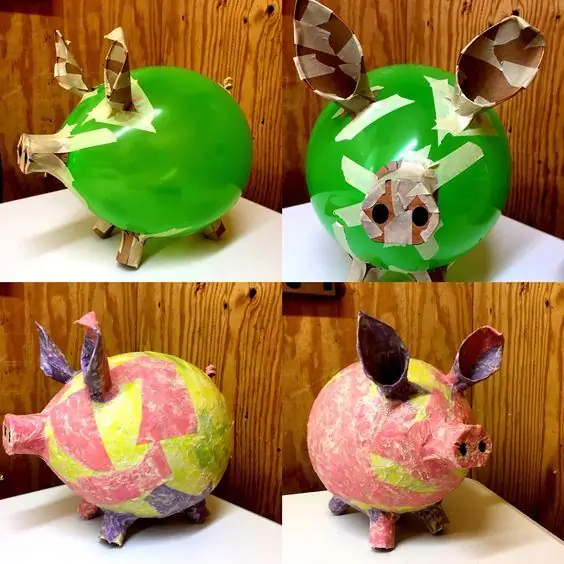
Table of contents:
- The first stage of learning the technique
- Papier-mâché flour paste
- How the layers are laid out
- Using toilet paper
- Paper clay recipe
- Material preparation
- Making flat figurines
- How to align papier-mâché
- How to align paper crafts
- Easter crafts: master class
- 3D figures
- Waste material or wire base
- Decorating crafts
- Author Sierra Becker becker@designhomebox.com.
- Public 2024-02-26 03:35.
- Last modified 2025-01-22 22:09.
For beginners, the papier-mâché technique is considered affordable and easy to perform. The work consists in the manufacture of various figurines, dishes, home decor items from layers of paper. There are several different options for performing such creative crafts, each of which we will describe in detail in our article.
The word "papier-mâché" is of French origin and translates as "crumpled paper". Now this is a whole art, the basics of which are taught from the senior preschool age in kindergarten and continue in elementary school. Small children work with waste material. It can be an old newspaper or magazine, unwanted brochures or toilet paper. For children, to connect the layers, the teacher brews a paste from ordinary wheat flour.
Adult masters most often use paper clay when creating crafts, which is created independently according to the recipe described below. Thus, any sculptural form can be made, using both drawn contours and a base made of cardboard, wire,plastic bottles and other convenient material.
The papier-mâché technique for beginners is also good because it is a budget option for translating creative ideas. After all, old paper can be found in any apartment, and you can cook a paste in just a few minutes, with just 1 tablespoon of white flour. Experienced craftsmen use PVA glue with several additives. Finished works after final drying are colorfully decorated and serve as decoration of the room.
The first stage of learning the technique
DIY papier-mâché crafts are best learned to do on simple grounds. For example, using a flat small plate or glass with rounded edges. Such work can be done by children in older groups of kindergarten. Preparatory work will be required for both the children and the educator. Preschoolers are given sheets of newspaper or tissue paper and deep bowls. Following the model of the teacher, the children tear the paper into small pieces or thin strips and put the small parts in a container.

The teacher pre-brews papier-mâché flour paste, as it is used only chilled. Then it is poured into small bowls for each child separately.
So that the paper does not stick to the base, such as a plate or glass, its surface is smeared with vegetable oil or wrapped with cling film. You also need to prepare a saucer with plain water. The first layer of paper is not glued to the base, but simply wet pieces of paper are superimposed. To do this, the child takes a strip,lowers it completely into the water, lifts it gently above the plate so that the excess moisture is on the glass, and applies it to the surface of the base greased with vegetable oil. Pieces need to completely fill it. Further work is already carried out with a paste. Consider how to properly brew it.
Papier-mâché flour paste
For a small job, it will be enough to brew 1 liter of paste. Fill a small saucepan with ¾ liter of water and put it on fire. At the bottom of the glass, place 1-2 tablespoons of wheat white flour and fill with a thin stream to the top with warm water. To prevent lumps from forming, stir the liquid constantly with a spoon. Mix the contents of the glass with the rest of the water in the saucepan and continue to cook the paste, remembering to stir occasionally.
When the consistency of the solution has reached the state of jelly, turn off the fire and continue stirring for some more time. It must be borne in mind that the paste immediately after brewing seems more liquid than we need to work on crafts, but as it cools it will thicken. If you accidentally digested the paste and it turned out to be too thick, then it can always be diluted with water to the desired consistency. To cool, put the pan in a cool place, for example, you can take it out to an open balcony. When the paste has cooled, it can be poured into a bowl convenient for work.
How the layers are laid out
Do-it-yourself papier-mâché crafts are made in several layers. The more of them, the stronger and stronger the figure will be made. If you paste over the surface of the base only 2-3layers, the figure will be easily deformed. Therefore, it is recommended to apply a minimum of 5-6 layers of paper. When pasting is carried out only with a newspaper, it is difficult to understand when the layer is completely filled. It is desirable, especially for children, to lay out layers of paper of different colors. For example, the first is a newspaper, the second is a white A-4 sheet torn into pieces.

As already noted, the first layer is applied from wet paper. For the second and all subsequent pieces, instead of water, they fall into the paste. You can use a brush or smear the surface of the craft with a mealy mixture, and then apply dry scraps of paper to the freshly applied paste. However, a brush can be useful in this version of the work. In the event that the strip overlapped another, and there is no glue at the junction, then it must be added with a brush, smearing the desired part. To make the work dry faster, it is best to apply the paste in a thin layer. The top surface of the craft remains intact. The finished figure, together with the base or frame, is set to dry. The room must be well ventilated. In summer, the work will dry faster on the windowsill, and in winter - not far from central heating radiators or a working fireplace. Do not rush to remove the craft from the base. The work can dry from several days to a week, depending on the thickness of the layers and the amount of paste. Only a completely dry craft can be easily removed from the base, and it can be decorated further.
Using toilet paper
There is a papier-mâché technique for beginners usingtoilet paper. Only single-layer and unpainted paper is suitable for work, without any dyes and an embossed pattern. It is soft and pliable in work, swells well, gets wet quickly, and the craft looks smoother and more even.

Sometimes masters use thin white napkins instead of toilet paper. The work is carried out according to the same principle as the previously described papier-mâché technique for beginners, namely: the first layer is applied on water, and the rest - with a paste or liquid PVA glue.
Paper clay recipe
Experienced craftsmen make complex sculptures of any shape and size using paper clay. They also make it from toilet paper without dyes and flavors.
To prepare the material for modeling, you will need the following ingredients:
- 1 roll of single ply paper.
- ¾ cup PVA glue.
- 2 tbsp. l. any mineral oil, such as vaseline.
- Half a cup of wheat flour.
- Use a mixer or blender for mixing.
- Water for soaking toilet paper.
- Capacity.
Material preparation
To start making papier-mâché out of toilet paper, a mixture is being prepared for work. In a large bowl, put the whole roll without the cardboard core. It can be carefully removed by crumpling or work hard and unwind the entire tape by hand. Then the paper is filled with water so that it covers it to the very top. Do not spare water, as all layers must be soaked. Leave the workpiece until completegetting wet.

When the paper swells, squeeze out all the liquid well with your hands, and transfer the resulting pulp to another container. Add the rest of the ingredients and mix thoroughly using a mixer or blender. You can not replace the constituent components with similar ones, as this will affect the properties of paper clay. The material should have a uniform consistency and resemble sour cream.
If the craft requires a denser structure, then add another half a glass of white flour and mix additionally.
Making flat figurines
Papier-mâché technology can be made on a plane and on any volumetric basis. If you want to make a planar image, then draw its outlines on a sheet of cardboard. Prepare the required amount of paper clay of the desired consistency. For the main work, you will need thicker clay so that the edges of the craft do not blur until the mold has completely solidified.
Spread it out in layers and let each layer dry well. If you immediately lay out paper clay of the selected thickness, then the craft will dry for a very long time. A layer-by-layer laying out of the material will speed up the process significantly. When the base is ready and dry, start leveling the surface.
How to align papier-mâché
In order for the surface to become even and smooth, it is necessary to use a grout from a liquid composition. It fills all the cracks, recesses and irregularities on the figure. Since the alignment is carried out in a thin layer, drying will not take much time. After that, additionalsanding with fine sandpaper, such as No. 100 or 180. Wipe the surface with a dry cloth to get rid of the resulting paper dust.
How to align paper crafts
We considered the option of rubbing surface roughness with liquid paper clay. If the work is done by pasting the base with pieces of paper, then after complete drying, the outer part of the craft must be coated with a fairly abundant layer of PVA glue. If the angularities are too visible, then first tear small, small pieces of thin paper and fill in all the recesses and cracks. Then work with a brush and glue.
Easter crafts: master class
One of the most popular crafts among craftsmen is papier-mâché Easter egg. Do not be surprised, but a small balloon is taken as the basis. It is inflated and the edge is tied with a knot. The egg-shaped form is wrapped with cling film and pasted over either with pieces of paper, or with thin toilet paper or napkins. The area around the knotted edge is left unused. In order for the paper to dry evenly on all sides, the pasted ball is placed with its narrow side in any glass or cup. In a vertical position, the workpiece is kept until completely dry.

When the layers have hardened, cut the rubber of the ball with scissors and take out the remaining rubber and cling film through the hole left unused during gluing. If you need a whole papier-mâché Easter egg, then seal the hole with pieces of paper and put the reverse side in a glass to dry.

Often on the Easter holiday, whole compositions are made in this technique, cutting a large hole in the front of the egg. Green sisal threads are laid inside, imitating spring grass, and already painted or painted eggs are laid on them. It turns out very impressive and original. You can seat a chicken or a bunny, place flowers or insects.
3D figures
Papier-mache crafts at home are often done on some basis. It can be dishes or a vase of any shape with smooth walls. If you are pasting over a voluminous object, then it will be possible to remove the dried papier-mâché only by cutting the workpiece on one side. After removing the base, the incision must be carefully sealed both inside and out.

You need to act carefully so that the edges of both halves match exactly. If the trace of your actions is still visible, then fill the slot with liquid paper clay. Smearing with the mixture is carried out with smoothing movements of the fingers.
Waste material or wire base
When making a figure of a bird or animal, several bases can be used as a frame, interconnected with adhesive tape or masking tape. So, for example, a vase can be made from a balloon and a paper cup attached to its top.
Use cardboard cores from toilet paper or kitchen napkins, pieces cut from corrugated packaging board, or wire frame structures. To keep them voluminousseveral turns of cloth, bandage or masking tape are wound on top of the wire and wrapped with cling film.

Then the entire surface of the frame is pasted over with pieces of paper or paper clay, and in layers. When the figurine has the desired shape, its outer shell is rubbed, leveled as described above and prepared for painting.
Decorating crafts
We have already got acquainted with the basics of the papier-mâché technique. The beginning of crafts is gluing layers of paper onto the frame. The end of the work is the decoration of the finished structure. Gouache paints are used for children's work. The first layer can be filled with a background color, and then an ornament or small details of the figure can be drawn with a thin brush. When the paint dries, the craft can be covered with acrylic varnish so that the paint does not stain the child's hands during the game, and the figure will be brighter, with a glossy surface.

If you are seriously fond of papier-mâché, then the figure is made durable and covered with acrylic paints. This craft can be used as a piece of home decor or as a garden figure.
Now you know how to make crafts with your own hands from papier-mâché. Master classes are given in the article. This work is painstaking, but interesting and creative. Try yourself in a new art form! Good luck!
Recommended:
Clay jewelry: ideas, master classes for beginners
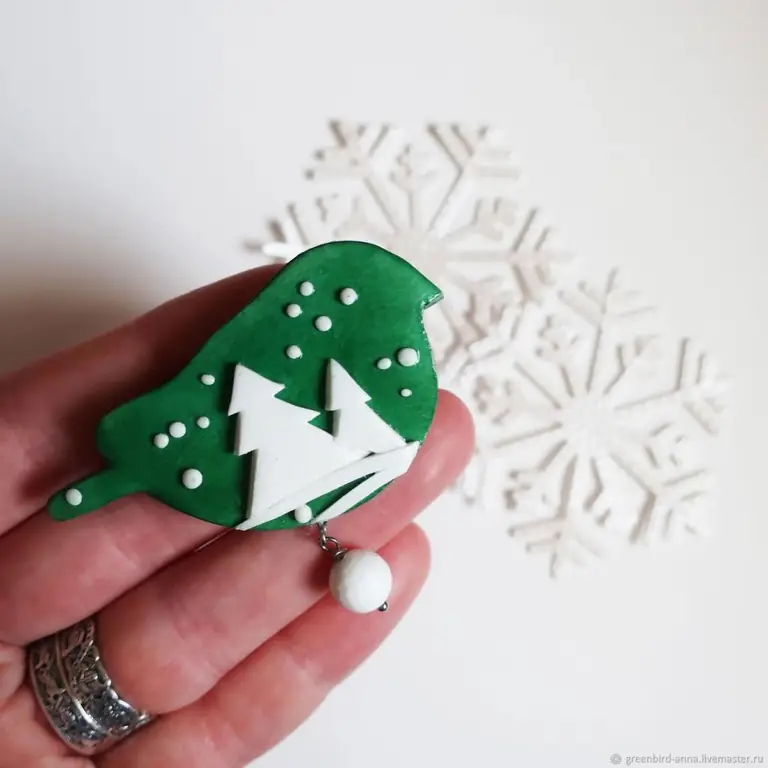
Do you want to surprise your loved ones with unusual gifts for the New Year, made by yourself? Modern materials for creativity allow you to create beautiful crafts and accessories without special skills and without much effort. Making clay decorations for the New Year tree is one example of such needlework. If there are children in your house, invite them to have a fun and useful time making toys
Diamond embroidery: instructions for beginners, technique, tips, tricks, kits
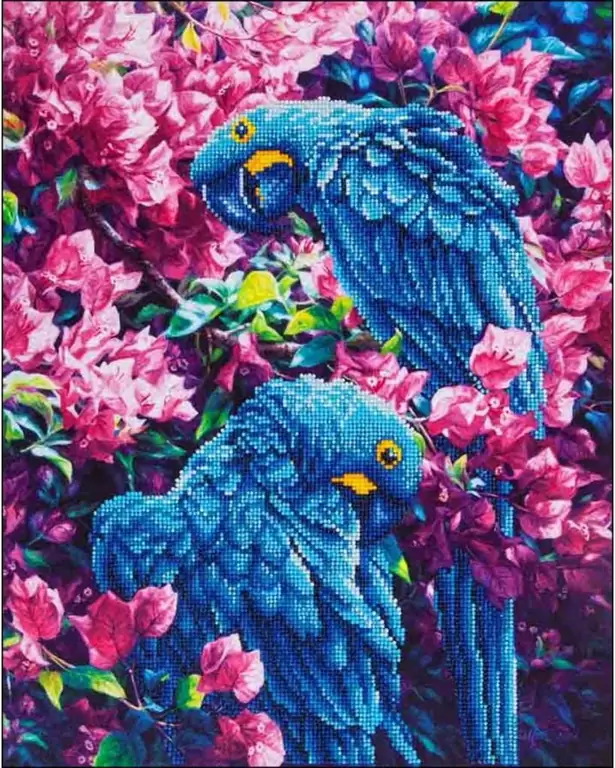
Recently, diamond embroidery has been especially popular with needlewomen. The works created in this technique amaze the imagination with the sophistication and grace of lines, delight with the magnificent play of light. The paintings look like a real gem. Anyone can try their hand at this art. The technology for assembling a diamond panel is simple compared to other types of needlework. The detailed instructions in the article will help you create a masterpiece with your own hands
What can be woven from beads: instructions for beginners, ideas and photos
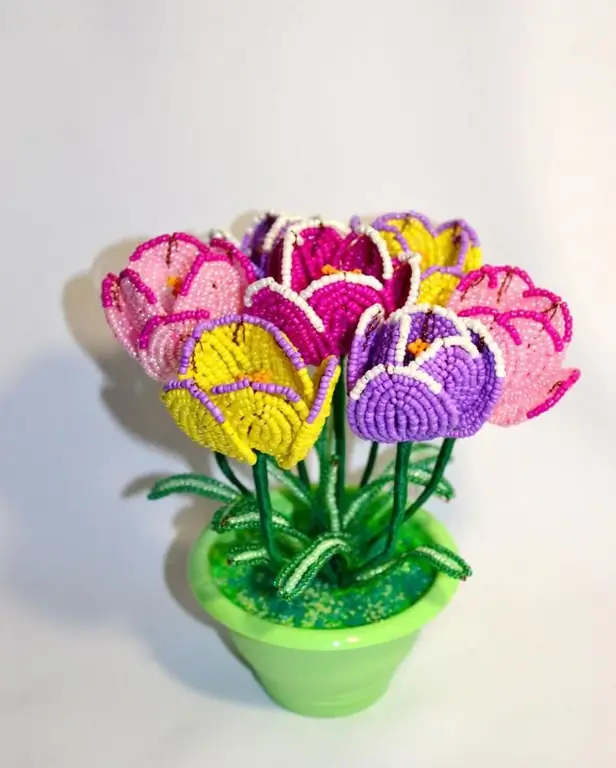
Many beginner needlewomen do not even imagine what can be woven from beads. The variety of products is huge: key rings, costume jewelry, decorative elements for decorating the interior. With the help of beads you can embroider magnificent pictures
DIY leather panels: photos of interesting ideas, step by step instructions for beginners
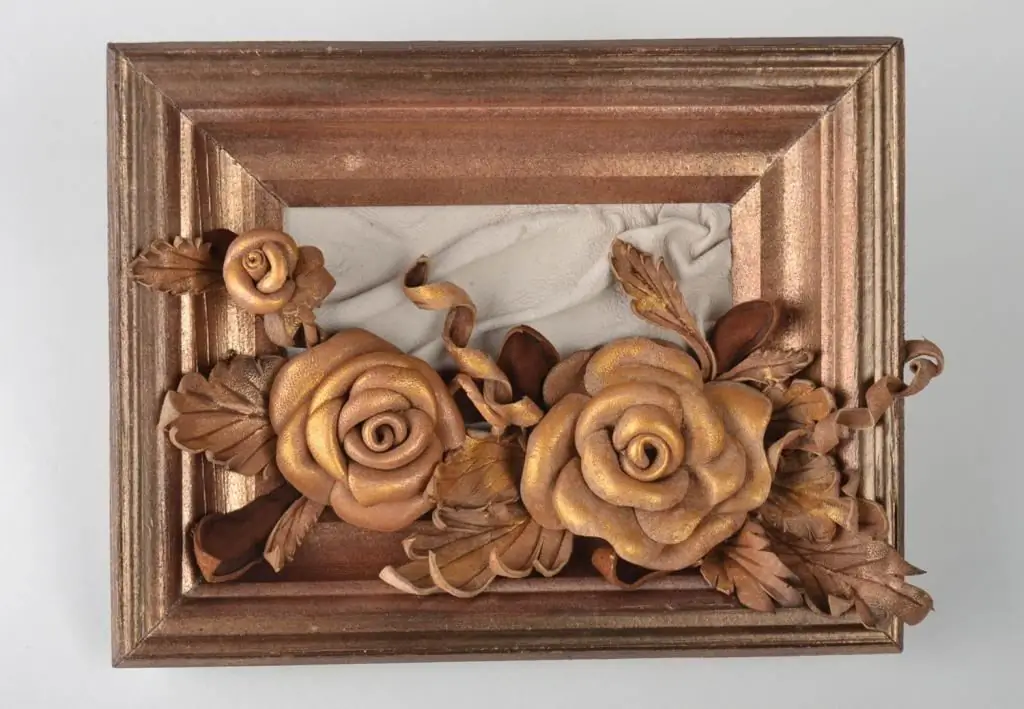
Panel made of leather can become a real decoration and highlight of the design of the room. You can make a picture of leather yourself, using the simplest techniques and decorative materials
Lesson needlework in the technique of felting wool. Master classes will help you understand

Felting wool is a rather laborious occupation, but nevertheless very exciting. This activity will be interesting for both children and adults
